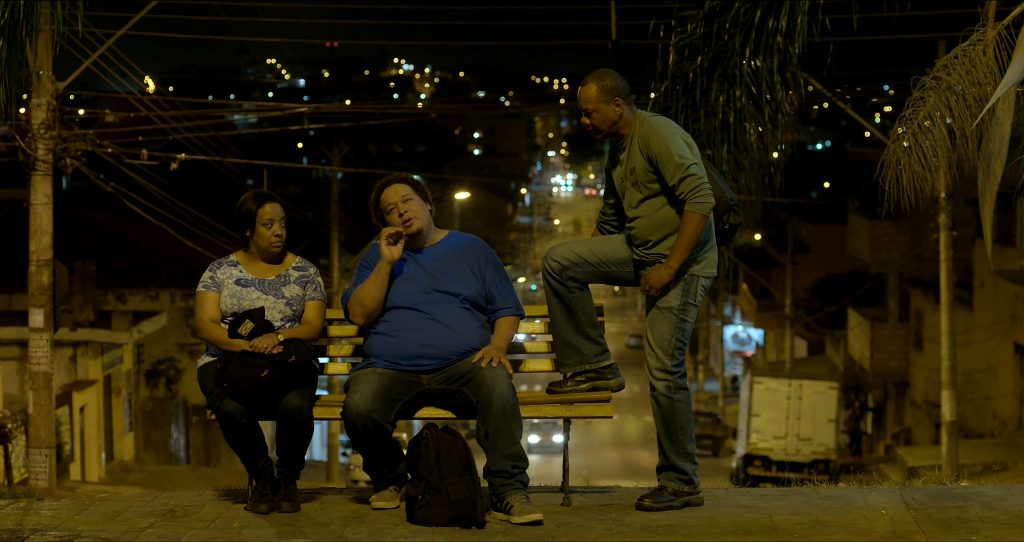Long Way Home (Temporada)

This is not a heinous film. It’s respectable, subtle and – perhaps that most faintly damning of terms – gentle. André Novais Oliveira keeps the pace at a plod as we follow Juliana (Grace Passô) to the Brazilian town of Contagem, a relative metropolis compared to her inner city roots. Beneath the move there’s tragedy, a sheet silently thawing, the cracks promising a life removed from the past.
Juliana waits for her husband to join her new surroundings. He’s weirdly absent. Communication withers. She starts a job for the local authority inspecting homes for Dengue fever. Mosquitoes, famously ephemeral and deadly, carry with them an opportunity for a basic wage. Her colleagues joke of how they’ll soon find something new.
The protagonist gets to know people and develops a social life. Half bemused, she plays Street Fighter at a friend’s house. As she opens up, her trauma is finally articulated. It’s a slow, acute scene: we voyeuristically observe from the door. The recollection halts at pain – memory flags but agony embeds itself. It hurts more than anything, she says, before or since.
Oliveira smartly, solemnly, evokes the body. There’s a lack of thin people, and the naked figures are refreshingly, candidly depicted. Within this writer’s limited, Western purview, one sexual act recalls Lucien Freud’s erotic portraits, all flesh and limbs merged into a single liquid mass.
As the title suggests, this is a film about transience, about temporary measures that shift to permanence. This speaks to several paradoxes: liberty through precarity, security through stasis. One a free market hymn, the other a conservative myth. Independence blossoms, yes, but it leaves one with a feeling of peculiar melancholy.
Joseph Owen
Long Way Home (Temporada) does not have a UK release date yet.
Read more reviews from our Locarno Film Festival 2018 coverage here.
For further information about the event visit the Locarno Film Festival website here.























Facebook
Twitter
Instagram
YouTube
RSS